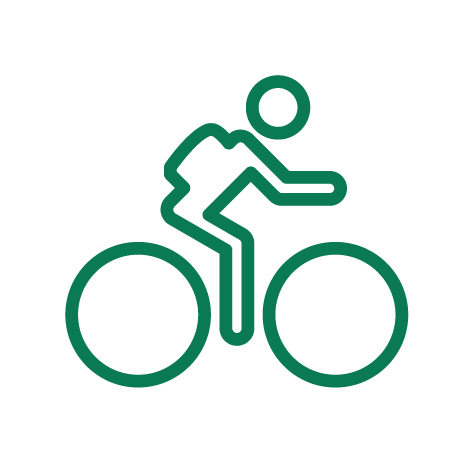It can be confusing, with so much advice available, to know how best to manage your wellbeing. Here are our top tips, that are easy to implement and can help keep you feeling physically and mentally well.
- Home
- Get Advice
- First aid advice
- Wellbeing
Tips for wellbeing
-
Pay attention to nutrition and hydration
If we think of our bodies like a car, they need the right fuel to be able to perform well. Try to eat nutrient rich, colourful food and, where possible, avoid processed food. Including plenty of fruit and vegetables in your diet can help you to feel energised and also helps boost your immune system.

Drinking water will not only keep you hydrated, it also helps you feel more energetic and is a key component of our bodies. Sipping it regularly throughout the day is the best way to ensure our bodies get the most benefit from it.
Limiting alcohol intake will also have a positive impact. It is recommended a maximum of 14 units of alcohol per week (six pints of 4% beer). There is no 100% safe amount of alcohol to consume, but sticking to a low-alcohol intake per week will lower the risks of harming your health.
-
Do what you love
When you are completely absorbed in doing something you enjoy the time often passes without you noticing and you often get a sense of accomplishment and fulfilment from it. Engaging in activities that you enjoy not only boosts your sense of wellbeing it can also help to relax you and reduce your stress.

Are you struggling to find a hobby? Why not try something new or go back to something that you enjoyed in the past. Potential ideas are singing, art, reading, puzzles, quizzes, listening to music or podcasts, baking...the list goes on! -
Talk
Talking about what is on your mind can help you get perspective on your situation and it can also help you find a solution to a problem that you may have had on your mind for a while. Talking also helps us to heal or come to terms with some of the more painful events we experience in life.

Sometimes talking to a trusted friend or colleague is all we need to get us back on track but there may be time where we need help from a professional and there is no shame in asking for help when you need it.
Your GP is a good place to start, or you may have a workplace EAP that you can call for confidential support.
-
Reduce screen time
It is difficult to say how much screen time is too much for an adult. Most adults use screens in their work life, making limiting screen time a constant challenge. However, outside of work, you may like to try some of these ideas:

- Stop using screens one hour before bedtime – this will give your brain the time to wind down before sleep, or at least turn down your brightness to match the fading of daylight
- Try to reduce the time you spend on social media. Your phone and other apps can help you keep track of this to allow you to set a goal for how much you would like to reduce by each week
- Look for alternative ways to relax such as playing games, going for walks, listening to music or meeting up with friends
-
Move your body
Whatever our age, physical activity contributes to our physical and mental health, especially if we engage in outdoor activities. Even moderate exercise, such as walking or gardening, releases chemicals in the brain that boost your mood.

To help you stick to your chosen activity get involved in things that you enjoy, consider joining a class or a club and make it part of your daily routine to help you ensure it is given priority.
-
Volunteer
Spending time helping others or working for a cause close to your heart has been proven to boost your sense of purpose and wellbeing and there are plenty of opportunities to get involved in your local area. Things like community schemes are a great way to get started and they often allow you to commit as much or as little time as your have.

The benefits you can expect to experience as a result of volunteering may include:
- A sense of belonging
- Reduced isolation
- Meeting new people and building new connections
- An improved perspective on life as we contribute to a collective project
- The satisfaction of knowing your have helped other people
-
Sleep
The amount of sleep we need varies for everyone but the average adult needs around 7-8 hours a night. As we sleep it allows our mind and body to repair and recover from the effects of the day.

It is not uncommon for people to have trouble sleeping, but a few things that can help improve sleep include:
- Keeping to a regular routine, where you go to bed and get up at a similar time each day, helps your body to unwind and prepare for sleep
- Get ready for sleep by using relaxation or meditation exercises that can help calm your mind
- Create a relaxing sleep environment that is cool, calm and quiet



